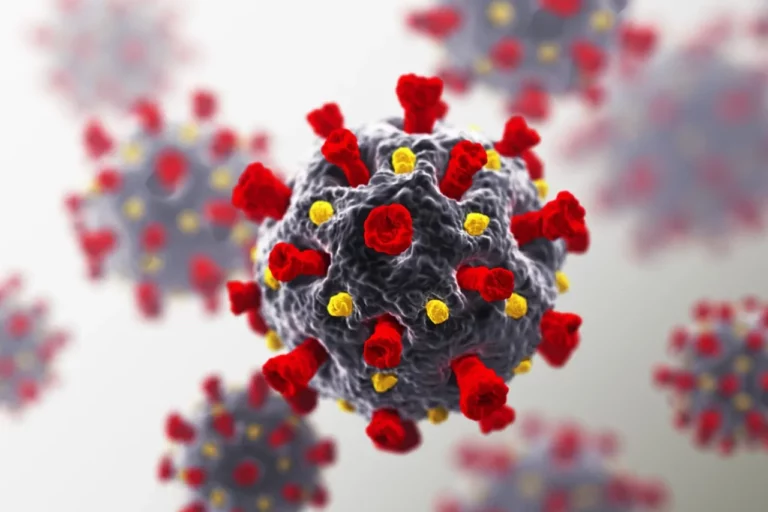Austria & Portugal Courts: COVID PCR test unfit without GP input, and quarantine illegal
March 21: Vienna follows Lisbon with a similar judgment and confirms Reason conclusions and WHO statement: PCR tests alone can’t suffice and need contextual, holistic approach by a GP before medical conclusion

Austrian and Portuguese courts confirm in exemplary judgments the analysis and conclusions drawn by Reason end of 2020 in our blogs. And we were simply compiling robust, official medical analyses and published papers.
A Court in Belgium declared on 31 Mar lockdown measures “illegal” and ruled the government ought to lift these within a month time or face fines.

It seems neither Messrs Fergusson, Wallance and Whitty nor SAGE or NERVTAG experts ever heard these judgments and other scientific facts. Probably, reading this information may get them an honorary Ph.D. in medicine or data analysis. For memory, at the time of our blog (7th Dec) and Lisbon’s ruling £1B of taxpayer money was being thrown on Operation Moonshot while clapping on hands for NHS staff and fomenting plans to influence the PM into announcing a third national lockdown.
The initial judgment in Portugal concluded Mandatory Quarantine is illegal (“Tribunais de Portugal decidem que quarentena obrigatória é ilegal”).
Portugues Court: Mandatory Quarantine is illegal. (“Tribunais de Portugal decidem que quarentena obrigatória é ilegal”).
Portuguese Court, April 2021
The Court in Vienna said PCR tests are unreliable and can’t be used solely to determine that a person is surely infected, even if they come up with a positive result.
“Österreichisches Gericht kippt Urteil: PCR-Test nicht zur Diagnostik geeignet.” (source)
As reported by The Italian Tribune, “La sentenza del Tribunale di Vienna sui tamponi: “Un test PCR non è adatto per la diagnosi”, “L’OMS segue l’inventore dei test PCR. Mutatis mutandis dice, che un test PCR non è adatto per la diagnosi e quindi non dice nulla da solo sulla malattia o l’infezione di una persona””
The original judgment by the Vienna Court is available here
The full judgment in Lisbon, Portugal: here
Vienna Court: PCR tests are unreliable and can’t be used solely to determine that a person is surely infected, even if they come up with a positive result.
Vienna Court, Mar 2021
Our Blog, dated 7th Dec 2020: ” Mr Jason Leitch, Scotland’s national clinical director has admitted PCR tests used to detect Covid-19 are “a bit rubbish”
Some translated excerpts can be found online and are reproduced below:
“Indeed, the RT-PCR (Polymerase Chain Reaction) tests, molecular biology tests which detect the RNA of the virus, commonly used in Portugal to test and list the number of infected (after nasopharyngeal collection), are performed by amplification of samples, through repetitive cycles.
The number of cycles of such amplification results in a greater or lesser reliability of such tests.
The problem is that this reliability is shown, in terms of scientific evidence (and in this field, the judge will have to resort to the knowledge of the experts in the field) more than debatable which is the result, among others, of the very recent and comprehensive study published at the end of September this year by Oxford Academic, run by a group of some of Europe’s leading experts and worldwide in this field.
This study concludes, in free translation
“At a cycle threshold (ct) of 25, around 70% of the samples remain positive in cell culture (i.e. they were infected): in a ct of 30, 20% of samples remained positive; in a ct of 35, 3% of the samples remained positive; and in a ct of more than 35, no sample remained positive (infectious) in the culture mobile phone (see diagram).
This means that if a person has a positive PCR test at a threshold of cycles of 35 or more (as is the case in most US laboratories and Europe), the probability of a person being infected is less than 3%.
The probability of receiving a false positive is 97% or higher”.
What follows from these studies is simple – the possible reliability of the PCR tests performed depends on the threshold of amplification cycles which the same includes, up to a limit of 25 cycles, the reliability of the test will be about 70%; if 30 cycles are performed, the degree of reliability will drop to 20%; if the 35 cycles are reached, the degree of reliability will be 3%.
In the present case, the number of cycles of amplification with which PCR tests are performed in Portugal, including Azores and Madeira, since we could not find any recommendations or limits in this respect.
vi. In a very recent study by Elena Surkova, Vladyslav Nikolayevskyy and Francis Drobniewski, accessible at
https://www.thelancet.com/journals/lanres/article/PIIS2213-2600(20)30453-7/fulltext,
published in the equally prestigious The Lancet, Respiratory Medicine, refers (to in addition to the multiple questions that the very precision of the test raises, as to the specific detection of the Sars-Cov-2 virus, for strong doubts about compliance with the call gold standard) that (free translation):
“Any diagnostic test shall be interpreted in the context of the actual possibility of the disease, which existed before it took place. For Covid-19, this decision to perform the test depends on prior evaluation of the existence of symptoms, previous medical history of Covid 19 or presence of antibodies, any potential exposure to this disease and not the likelihood of another possible diagnosis. “
3. “One of the potential reasons for presenting positive results could reside in the prolonged spillage of viral RNA, which is known to extend over weeks after recovery in those who were previously exposed to SARSCoV-2. However, and more importantly, there is no scientific evidence that suggests that low levels of viral RNA per RT-PCR are equivalent to infection unless the presence of infectious viral particles has been confirmed through laboratory culture methods.
In summary, Covid-19 tests showing false positives are each more likely, in the current epidemiological climate outlook of the UK, with substantial consequences at the personal, health system and corporate levels. “
4. 18. Thus, there are so many scientific doubts, expressed by experts in the matter, which are the ones that matter here, as to the reliability of such tests, ignoring the parameters of its realisation and there being no diagnosis carried out by a doctor in the sense of infection and risk, never it would be possible for this court to determine that C…was a carrier of the SARS-CoV-2 virus, nor that A., B… and D… had high-risk exposure.
In conclusion, it will be said that, since the action brought shows inadmissible on the grounds of lack of legitimacy and lack of interest in acting on the part of the applicant, as well as is manifestly unfounded, it must be rejected under Article 401(1)(a), Article 417(6)(b) and Article 420(1)(a) and (b), all of the Treaty establishing the European Community.
C.P. Criminal.”
IV – DECISION.
In the light of the above, and under the provisions of Articles 417(6)(b) and 420 (a) and (b), both of which are set out in the Code of Criminal Procedure, reject the appeal brought by REGIONAL HEALTH AUTHORITY, represented by the Regional Health Directorate of the Region
Autonomous Region of the Azores.
Pursuant to Article 420(3) of the Criminal Code, the applicant is ordered in the procedural penalty of 4 UC”
Thank you for your time and interest.
Please join us by subscribing to our Blog. Posts are occasional and written as thoughts come.
Please leave your comment at the bottom of this page to continue the reflection on this post.
If you are looking for a reliable, independent professional consultancy to assist you in getting through the mist and the storm and cutting through an often artificial complexity, please do get in touch with us for an informal discussion, or write to contact @ reasonmakesense .com (please remove spaces)
Get in touch to discuss freely; reason will Make Sense, with you and for you.
A few words about Reason

reason supports Shareholders, Board, C-Suite Executives and Senior Management Team in achieving Business Excellence and Sustainability through our Praxis unique approach.
We Make Sense with you and for you.
We work and think with integrity, are independent and fed by a very broad spectrum of robust information sources, which is certainly one of the rarest and best qualities a consultancy can offer demanding decision-makers willing to overcome challenges and reach impactful, tangible and measurable Business Excellence.
We follow reason, facts, best practices, common sense and proper scientific approaches. This is our definition of professionalism. It brings reliability, confidence and peace of mind.
Please check our offering, subscribe directly on this page, write to contact @ reasonmakesense .com (without the spaces) or click on our logo below to get redirected to our contact form.
Thank you for reading!
Reason Praxis | Make Sense
Excellence & Sustainability
www.reasonmakesense.com
There is nothing wrong in doing things right, first time.
Share this post








